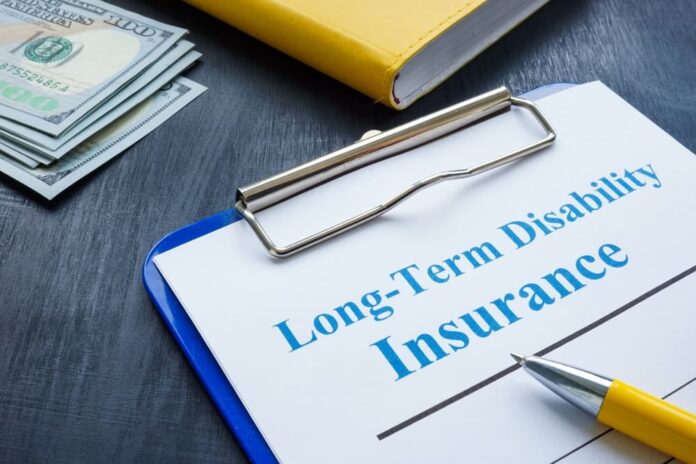Filing a long-term disability claim can be an overwhelming and stressful experience, but it doesn’t have to be. By understanding the process, staying organized, and knowing your rights, you can navigate the maze of paperwork and bureaucracy without losing your sanity. More information can be found here.
Long-term disability (LTD) insurance is designed to provide financial support if you are unable to work due to a significant injury or illness. This type of insurance typically kicks in after short-term disability benefits are exhausted, usually after 90 to 180 days. LTD benefits can cover a portion of your salary, helping you maintain financial stability during your recovery period.
More information can be found here.
Gathering Essential Documentation

One of the most crucial steps in filing a long-term disability claim is gathering all necessary documentation. This includes medical records, a detailed description of your condition, and how it affects your ability to work. You’ll also need to provide employment records, such as job descriptions and performance reviews, to demonstrate the nature of your job and how your disability impacts your ability to perform it.
Your medical records should be comprehensive, covering all treatments, tests, and diagnoses related to your disability. It’s essential to keep all correspondence with healthcare providers and your employer to support your claim. Consistent and detailed medical documentation can significantly improve your chances of a successful claim.
Completing the Claim Forms
Once you have all your documentation, the next step is to complete the claim forms provided by your insurance company. These forms can be extensive and may require detailed information about your medical condition, employment history, and daily activities. It’s important to be thorough and accurate when filling out these forms. Any inconsistencies or missing information can lead to delays or denials of your claim.
If you find the forms confusing or overwhelming, don’t hesitate to seek assistance. You can contact your insurance company’s customer service for clarification or consult with a long-term disability lawyer to ensure your forms are completed correctly. An experienced lawyer can also help you understand your policy and the benefits you’re entitled to.
Communicating with Your Employer and Insurance Company
Effective communication with your employer and insurance company is vital throughout the claims process. Keep your employer informed about your condition and your progress. This can help in getting necessary accommodations or modifications to your job if you can still perform some duties. Maintaining open communication can also demonstrate your willingness to return to work if and when you are able.
When dealing with your insurance company, be clear and concise in all your communications. Document every interaction, including phone calls, emails, and letters. Keeping a record of your communications can be invaluable if there are any disputes or issues with your claim.
Dealing with Denials and Appeals
Unfortunately, not all long-term disability claims are approved on the first try. If your claim is denied, don’t panic. Insurance companies often deny claims initially, but you have the right to appeal the decision. The denial letter should explain why your claim was denied and provide instructions on how to appeal.
Review the denial letter carefully and address the reasons for the denial in your appeal. This may involve providing additional medical documentation, correcting errors in your original claim, or getting statements from your doctors or employer. An experienced long-term disability lawyer can be especially helpful during the appeal process, guiding you on the best approach to strengthen your case.
Staying Organized and Persistent
Staying organized is key to managing the long-term disability claims process without feeling overwhelmed. Keep all your documents, forms, and communications in one place, such as a dedicated folder or digital file. This organization will make it easier to find information quickly and respond to any requests from your insurance company promptly.
Persistence is also crucial. The process can be lengthy and frustrating, but giving up could mean losing the benefits you’re entitled to. Stay proactive, follow up regularly with your insurance company, and meet all deadlines for submitting forms and appeals.
Seeking Professional Assistance

Navigating the long-term disability claims process can be challenging, especially when you’re dealing with a significant health issue. Seeking professional assistance from a long-term disability lawyer can make a big difference. A lawyer can help you understand your policy, complete the necessary paperwork, communicate with your insurance company, and represent you in appeals if necessary.
Hiring a lawyer doesn’t mean you’re anticipating a battle with your insurance company, but it can provide peace of mind knowing you have an expert on your side. Lawyers specializing in long-term disability claims understand the intricacies of the process and can help you avoid common pitfalls.
Taking Care of Your Mental Health
The stress of dealing with a long-term disability claim can take a toll on your mental health. It’s important to take care of yourself during this process. Seek support from friends and family, join support groups for individuals facing similar challenges, and consider speaking with a mental health professional.
Practicing self-care can also help you manage stress. Engage in activities that you enjoy and that help you relax, whether it’s reading, walking, meditating, or pursuing a hobby. Remember that your health is the most important priority, and taking care of your mental well-being is crucial during this time.
Conclusion

Filing a long-term disability claim can be a daunting task, but it is manageable with the right approach. Understanding the process, staying organized, and seeking professional assistance can help you navigate the system successfully. Remember to take care of your mental health and stay persistent. By doing so, you can secure the benefits you need without losing your mind. For more detailed information and guidance, you can find more information here.










